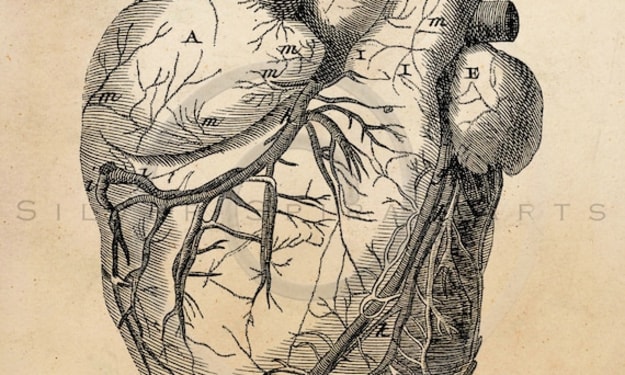3 Major Principles of Muscle Growth
Weight Gaining

Muscle growth, also known as muscle hypertrophy, occurs when muscle fibers increase in size due to resistance training, proper nutrition, and sufficient recovery. Whether you’re a professional athlete, fitness enthusiast, or just looking to build muscle for health and wellness reasons, understanding the three major principles of muscle growth is essential for achieving your goals. In this blog post, we will discuss in detail the three major principles of muscle growth and how they work together to promote muscle hypertrophy.
Progressive Overload:
The principle of progressive overload is the foundation of muscle growth. Progressive overload refers to the gradual increase of resistance or weight lifted during exercise to continuously challenge the muscles and stimulate growth. When muscles are exposed to a greater resistance than they are accustomed to, they adapt by increasing in size and strength. To achieve progressive overload, you can gradually increase the weight lifted, the number of sets and reps performed, or the intensity of the exercise.
There are several ways to achieve progressive overload, including:
Increasing the resistance: This involves increasing the weight lifted during exercises such as squats, bench presses, or deadlifts. The increase in weight should be gradual to avoid injury and ensure proper form.
Increasing the number of sets and reps: This involves gradually increasing the number of sets and reps performed during an exercise. For example, if you were doing three sets of 10 reps of bicep curls, you could increase to four sets of 12 reps.
Increasing the intensity: This involves making the exercise more challenging, such as by decreasing the rest time between sets or performing more advanced variations of the exercise.
By incorporating progressive overload into your workout routine, you will continuously challenge your muscles, which will result in muscle growth and improved strength.
Proper Nutrition:
Proper nutrition is crucial for muscle growth. To build muscle, the body needs adequate amounts of protein, carbohydrates, and healthy fats. Protein is especially important for muscle growth as it provides the building blocks (amino acids) for muscle fibers to repair and grow. The recommended daily protein intake for muscle growth is about 1 gram of protein per pound of body weight.
Carbohydrates are also important as they provide energy for exercise and help replenish glycogen stores in the muscles. Complex carbohydrates such as whole grains, fruits, and vegetables are preferred over simple carbohydrates such as sugar.
Healthy fats are essential for overall health and wellness and should be included in the diet in moderation. Sources of healthy fats include nuts, seeds, avocados, and fatty fish.
While the three major principles of muscle growth are essential, there are other factors to consider when trying to build muscle. One factor that’s often overlooked is exercise selection. Different exercises target different muscle groups and stimulate muscle growth in different ways. By incorporating a variety of exercises into your workout routine, you can effectively target all the major muscle groups and promote overall muscle growth.
In addition to proper macronutrient intake, it’s also important to stay hydrated and consume adequate vitamins and minerals. Vitamin D, calcium, and magnesium are especially important for bone health, which is essential for overall strength.
Sufficient Recovery:
Sufficient recovery is necessary for muscle growth as it allows the muscles to repair and grow. During resistance training, small tears occur in the muscle fibers, which need time to heal and rebuild. Without adequate recovery, the muscles may become fatigued and overtrained, which can lead to injury and hinder muscle growth.
There are several ways to promote sufficient recovery, including:
Rest days: Rest days are important for allowing the muscles to recover and rebuild. This can involve taking a day off from exercise or doing lighter workouts such as yoga or stretching.
Sleep: Sleep is essential for recovery as it’s the time when the body repairs and regenerates. Aim for 7-8 hours of sleep per night.
Stress management: Stress can interfere with recovery by increasing cortisol levels, which can hinder muscle growth. Engage in stress-reducing activities such as meditation or deep breathing.
Proper nutrition: Proper nutrition is also important for recovery as it provides the necessary nutrients for muscle repair and growth.
In conclusion, muscle growth is a complex process that involves several factors, including progressive overload, proper nutrition, and sufficient recovery. By incorporating these three major principles into your workout routine, you can effectively stimulate muscle growth and achieve your fitness goals.
It’s important to note that muscle growth takes time and consistent effort. Results won’t happen overnight, and it’s important to be patient and persistent. It’s also important to listen to your body and avoid overtraining, which can lead to injury and hinder progress.
In addition to these three major principles, other factors can also impact muscle growth, such as genetics, age, and hormone levels. However, by focusing on progressive overload, proper nutrition, and sufficient recovery, you can optimize your chances of achieving your desired level of muscle growth and overall fitness.
Compound exercises, such as squats, deadlifts, and bench presses, are particularly effective for muscle growth as they work multiple muscle groups at once. Isolation exercises, such as bicep curls or leg extensions, can also be effective for targeting specific muscle groups.
Another important factor to consider is the frequency of workouts. While progressive overload is important, it’s also important to allow adequate time for the muscles to recover. Depending on your fitness level and goals, you may need to adjust the frequency of your workouts to optimize muscle growth.
Consistency is also key for muscle growth. It’s important to establish a consistent workout routine and stick to it. This means setting realistic goals, tracking your progress, and adjusting your routine as needed.
Finally, it’s important to listen to your body and make adjustments as needed. If you experience pain or discomfort during a workout, it may be a sign that you’re overtraining or using improper form. It’s important to seek the guidance of a qualified fitness professional if you’re unsure about proper technique or experiencing pain or discomfort.






Comments
There are no comments for this story
Be the first to respond and start the conversation.